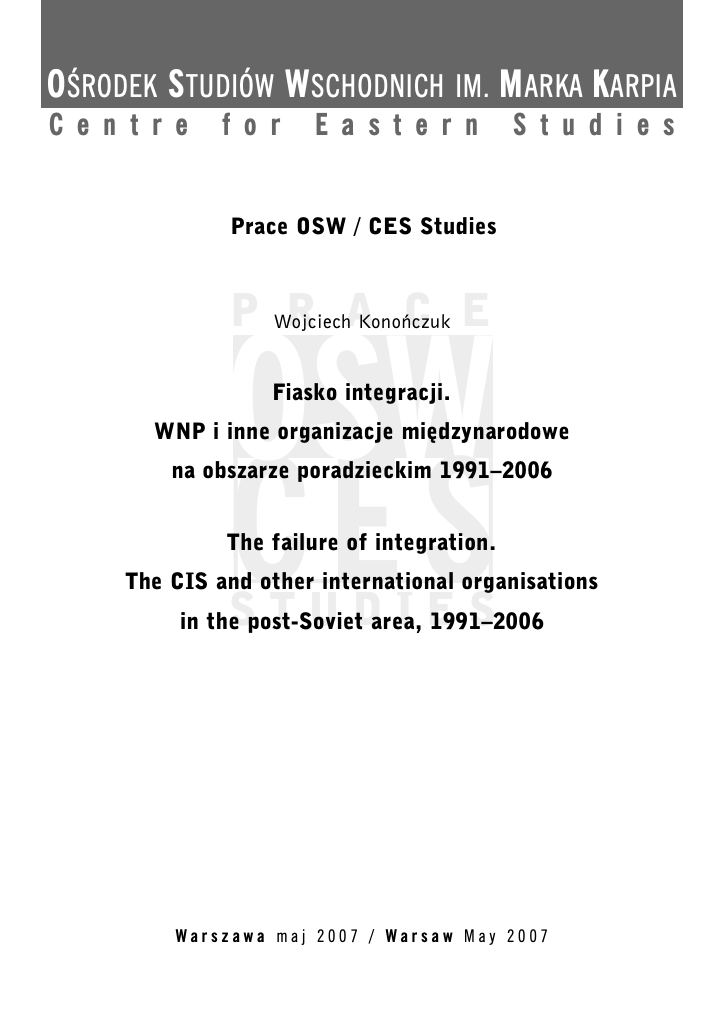The failure of integration. The CIS and other international organisations in the post-Soviet area, 1991-2006
The failure of integration. The CIS and other international organisations in the post-Soviet area, 1991-2006
Author(s): Wojciech Konończuk
Subject(s): Politics / Political Sciences, Politics, Geopolitics
Published by: OSW Ośrodek Studiów Wschodnich im. Marka Karpia
Keywords: CIS; post-Soviet area
Summary/Abstract: 1. Institutional integration processes in the post-Soviet area have ended in failure. It proved impossible to transform the Commonwealth of Independent States into an instrument of real co-operation, even though Russia, which was the most interested in integrating the post-Soviet space, made repeated efforts to this end. The CIS never managed to accomplish its declared objectives and, from this point of view, it does not exist as an integration organisation and de facto never did.
2. Integration within the CIS framework was bound to fail from the start due to objective reasons, in particular the fact that Russia's political, economic, population and territorial potential greatly exceeded those of the other member states. Fifteen years on, the organisation is still nothing more than a forum for periodic top-level meetings that provide an opportunity for bilateral and multilateral consultations. The term 'CIS' has been replaced by 'the CIS area'.
3. As integration within the group of twelve states failed, Russia started to initiate the creation of smaller regional organisations of which it was also a member, such as the Eurasian Economic Community (EurAsEC), the Collective Security Treaty Organisation (CSTO) and the Common Economic Space (CES). Co-operation within these structures remained largely superficial and ineffective, and their main objective was to preserve Russian political influence in the regions concerned. The practice of post-Soviet institutional co-operation proves that the former Soviet countries are still unable to establish effective integration structures, either in the 'twelve' format or in smaller groups.
4. Integration processes in the post-Soviet area failed because the foreign policy priorities of individual CIS members grew increasingly dissimilar, and because the CIS countries strove to become independent of Russia. Any international organisation established in the post-Soviet area in which Russia was a member would inevitably become dominated by Moscow. On the other hand, any organisation excluding Russia but with its centre in the CIS would be seen by Moscow as anti-Russian.
Series: OSW Studies
- Page Count: 51
- Publication Year: 2007
- Language: English, Polish
- eBook-PDF

